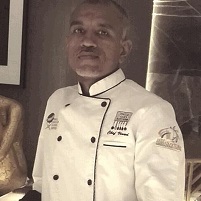Hands-on skills training will remain a challenge in online learning, says Principal & Director-South at Indus Institute
Read the edited excerpt of the conversation below:
Q: How has today’s scenario of lockdown and global pandemic impacted your education system?
A: Sometime in the last week of March, we had temporarily closed our Indus Institute as a precautionary measure to contain the spread of the novel coronavirus. It’s close to about 50 days now and as per Government guidelines, we plan to reopen our Institute in July. We had ensured that our students are safe during this lockdown period as some of our students are from different parts of the country such as North East, North and South India.
The Covid-19 crisis has crippled the hotel and catering education sector. The conventional Indian education system follows face-to-face or physical teaching, even though the trend of audio-visual aids in classrooms was introduced a decade ago. Meanwhile, we are taking online theory classes for our students from Culinary, Bakery and Confectionery and Hairstyling courses. Our courses have 70 per cent practical sessions and hence importance is given to hands-on training. Most of these ingredients and equipment required to conduct practical sessions are available only at our labs and hence it becomes difficult to conduct our practical sessions online.
We at Indus will follow all the guidelines as given by our Central and State government to create and have a safe and healthy learning environment for our students, faculty and staff.
Q: What are some of the interesting initiatives your institute has taken to make it easy for your students and also contribute to eradication of this pandemic?
A: It’s not about the interesting initiative but the most important decision to be taken at that time was to send students back to their home safely. That was the need of the hour because we have students from various parts of the country.
Another, important decision to be taken was to move the curriculum online to ensure their learning does not stop.
Q: How is the institute planning to conduct exams, evaluate and declare results online?
A: Our process to conduct exams, evaluate and declare result depends on the instructions and guidelines given by University. Ou courses are in collaboration with Alagappa University and affiliated with Bharat Sevak Samaj. Like any other professional programme such as Medicine and Engineering, our courses are practical-oriented and the assessments will be complete only if practical evaluation is done.
Q: How are students responding to new initiatives?
A: Our students have extended their complete cooperation and helped to make our new initiatives successful. They appreciate the efforts made by the faculty. Some of the difficulties that they convey, such as internet speed, network error, unable to have the same class environment at home etc. Appropriate solutions for these problems are accordingly advised by our faculty to them.
Q: What impact will it have on students’ interpersonal, team management skills?
A: With most of the learning or training happening through an online module, it has not just affected our students, but our faculty had to also adapt to these methods. We are confident that this experience will enhance the capacity to perform a variety of tasks under adverse conditions, with limited resources. Almost all of our faculty are conducting online theory training assigned to them from home. Several groups-based interactions have been added to our online training module to strengthen our students' interpersonal and team management skills.
Q: What are the best practices that the college is adopting to ensure seamless online learning?
A: In order to ensure seamless online learning, we are continuously taking feedback from students and faculty and improvising our online method of training.
Q: How will today’s situation revolutionise online learning in India and abroad?
A: While logistically sound, taking too many online training can be a challenge for a student's future. One of the most glaring issues with online education is the lack of interpersonal communication. A big disadvantage to students is the lack of one-on-one support. Different students may have a different level of understanding for the same topic, it will be equally challenging for the trainer and student to ensure that all students have understood the topic. It is a known fact that most people in the country do not have access to high-speed WiFi and some of our students coming from small cities and humble background may not have resources to facilitate the online learning module.
Indus offers a superior skills-building programme that requires constant practice and supervision, and since most students come from a background that don’t have the ingredients and equipment required, we cant resort to becoming a YouTube-like channel giving one-way instructions.
News & Updates
Contact Details
Address
49, Poonamalle Road,
Landmark: Near Hilton Hotel
Ekkatuthangal, Chennai ( Tamil Nadu)








